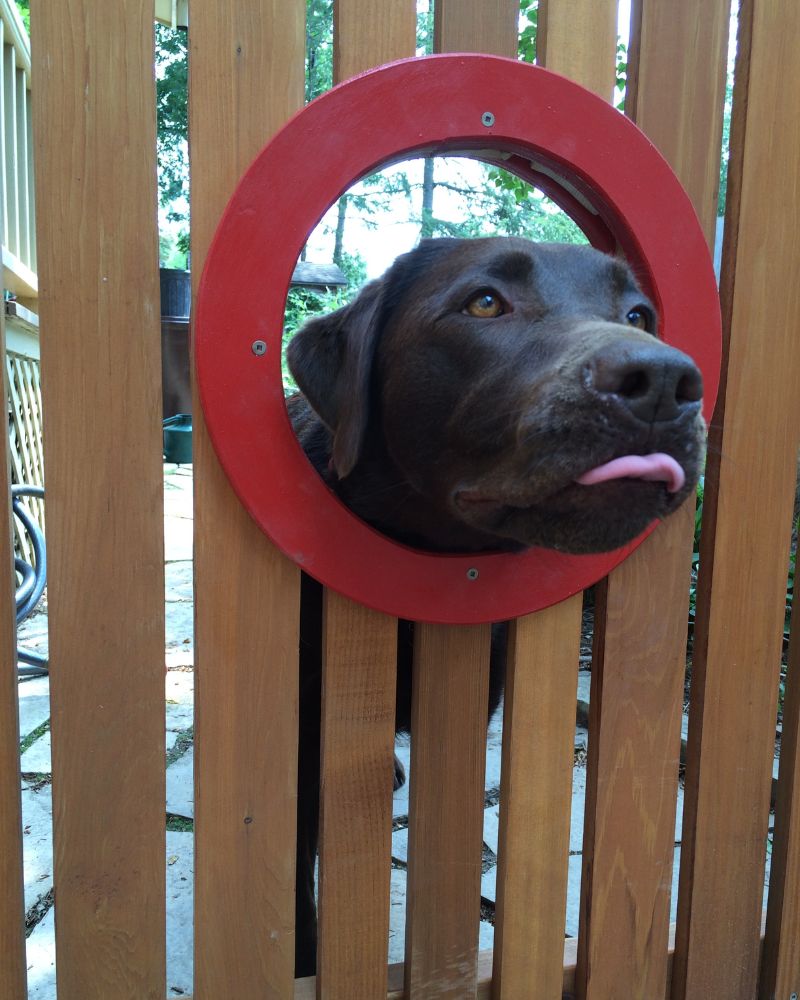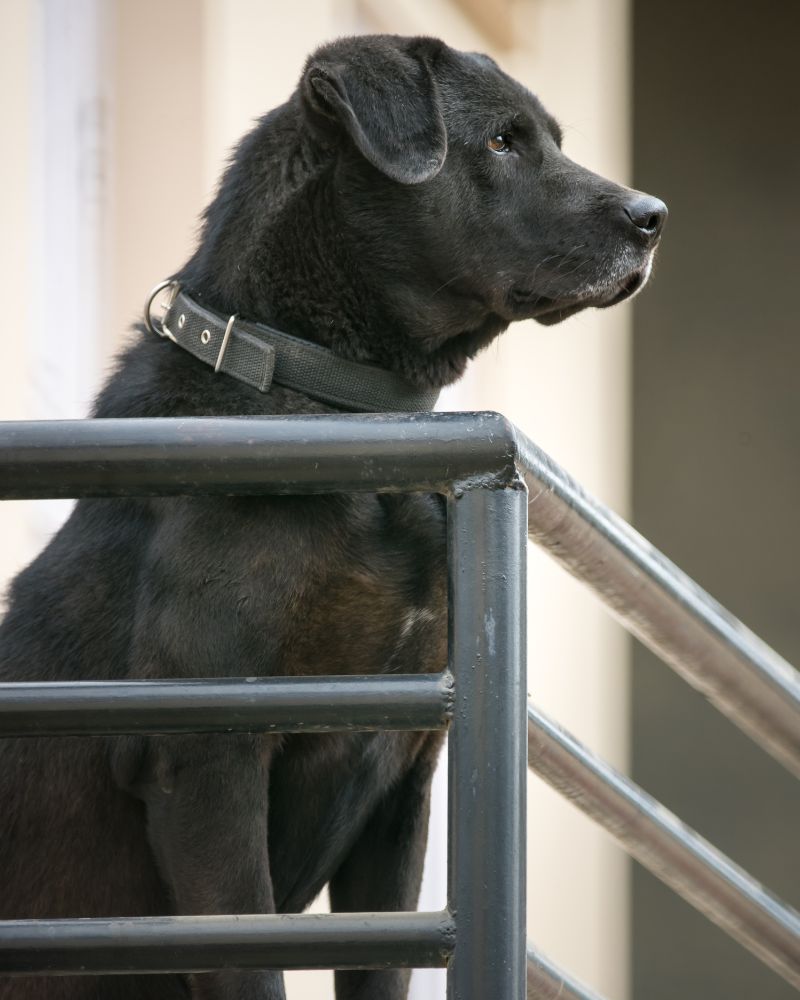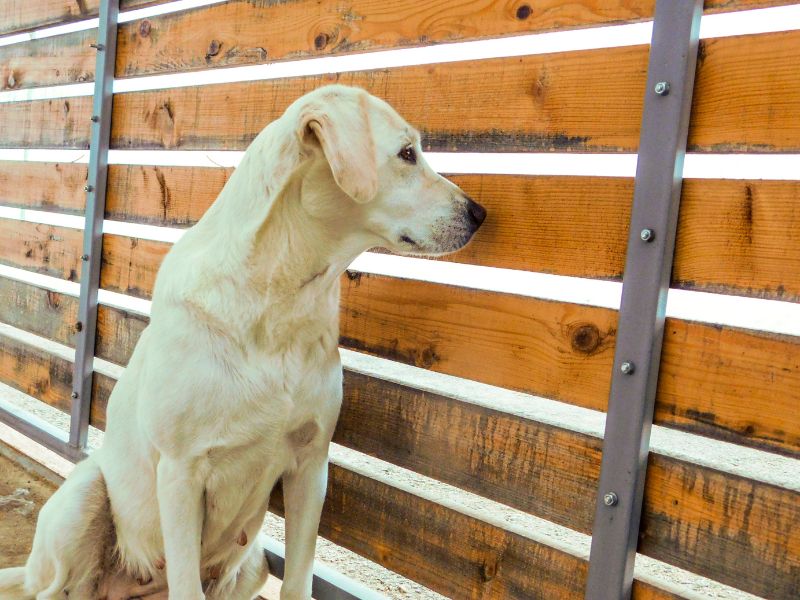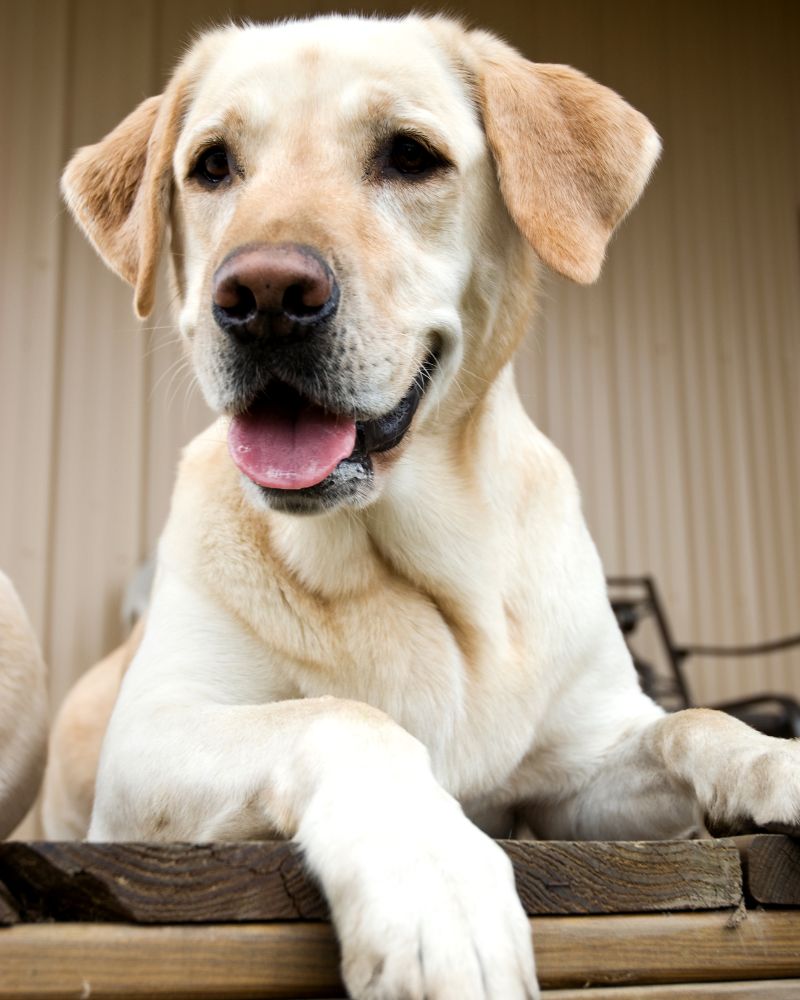
Labrador Retrievers are undeniably popular around the globe for their friendly and sociable nature, making them ideal companions for families. However, when it comes to guarding abilities, it’s a bit of a grey area. Unlike breeds specifically bred for protection work, Labs are primarily known for their hunting abilities. That being said, some Labs may exhibit protective behaviors towards their loved ones and territory. So, can Labs be good guard dogs or watch dogs? The answer isn’t black and white. It all boils down to the individual pup’s personality, upbringing, and exposure to different people and situations. While Labs may not be your typical guard dog breed, they can still surprise you with their loyalty and protective instincts.

Labradors are famous for their friendly and outgoing nature, making them one of the most beloved dog breeds globally. The question of whether Labradors make good guard dogs or watch dogs is a tricky one, as it ultimately hinges on the dog’s individual temperament and training. Although Labradors are not typically bred for guarding or protection purposes, they can still excel as watchdogs. Thanks to their high intelligence and keen sense of smell, Labradors are adept at detecting unusual activity and alerting their owners. Their loyalty and protective instincts towards their families can also serve as a deterrent to potential intruders. Nevertheless, Labradors are not inherently aggressive, which can pose challenges when it comes to guarding duties. They are more likely to bark and alert instead of physically confronting intruders. It is crucial not to train Labradors to be aggressive, as it contradicts their naturally friendly and gentle demeanor. To sum up, while Labradors may not be the ideal guard dogs, they can still be effective watchdogs with proper training and exposure. It is important to maintain their amicable and non-aggressive temperament throughout the process. Understanding the distinction between a guard dog and a watchdog can help in managing expectations when considering a Labrador for home security purposes.

Can a Labrador Retriever be trained to be a guard dog? While Labradors are known for their friendly and outgoing nature, they can still be trained to act as guard dogs to some extent. However, it is important to remember that Labradors are not as naturally protective or aggressive as breeds like Rottweilers or German Shepherds. With the right training and socialization, a Labrador can learn to bark and growl to alert their owners of potential danger, but they may not have the same level of guarding instincts as other breeds. Labradors can still make great watch dogs, using their alertness and loyalty to protect their owners in their own unique way.

Labrador Retrievers are well-known for their friendly and playful demeanor, but can they also double up as guard dogs? The answer is a positive one – with the right training and socialization, Labs can indeed excel in the role of guard dogs. A key advantage of having a Lab as a guard dog is their size and strength. Labs fall into the medium to large breed category, and their muscular physique can be quite imposing to potential intruders. Their innate loyalty and protective instincts towards their owners further bolster their suitability for this role. However, it’s worth noting that not all Labs are cut out for guard dog duties. Some Labs may lean too heavily on their friendly nature, lacking the necessary aggression required to ward off intruders. Therefore, it’s crucial to provide proper training to help a Lab differentiate between friend and foe. While Labs can effectively alert their owners to the presence of intruders, they may not possess the same level of aggression and guarding instincts as breeds specifically bred for such purposes. Consequently, Labs might not be the ideal choice for securing high-security areas. In essence, Labs have the potential to be outstanding guard dogs when equipped with the appropriate training and socialization. Their combination of size, strength, loyalty, and protective instincts make them a formidable deterrent to potential intruders. Nevertheless, it’s imperative to carefully assess each Lab’s temperament and suitability for guard dog work before assigning them to such roles.

Guard dogs are well-known for their protective nature and their ability to safeguard their owners and property. They have specific characteristics that help them excel in this role. Here are some key traits of guard dogs: Devotion One of the most important traits of a guard dog is loyalty. They need to be devoted to their owners and willing to defend them no matter what. This fierce loyalty is what drives them to put themselves in danger to ensure their owner’s safety. Obedience Guard dogs must be easily trainable. They should be able to understand commands and follow their owner’s instructions. Training should start early on and continue throughout the dog’s life to ensure they are obedient and responsive. Confidence Confidence is another crucial trait for guard dogs. They must have faith in their abilities and not be easily frightened. This self-assurance allows them to confront potential threats with courage and without hesitation. Protective Instinct A strong protective instinct is essential for guard dogs. They should be able to detect potential dangers and react appropriately. This protective instinct can be nurtured through proper training and socialization. In conclusion, guard dogs possess a unique set of qualities that make them effective protectors. By undergoing the right training and socialization, these traits can be further developed, enhancing their capabilities as guardians. Don’t forget to check out Pippa’s Training Tips for further guidance!

Pippa shares some valuable advice on training your Labrador to become a reliable guard dog. Here are her top suggestions: 1. Early Socialization: It is crucial to socialize your Labrador early on to ensure they are comfortable around people and animals, reducing the likelihood of them becoming aggressive or fearful. 2. Positive Reinforcement: Pippa advocates for using positive reinforcement when training your Labrador. Rewarding good behavior with treats, praise, and attention will help them associate positive outcomes with behaving well. 3. Basic Commands: Teaching your Labrador basic commands like “sit,” “stay,” and “come” will help them understand what is expected of them and make them easier to manage. 4. Bark on Command: Training your Labrador to bark on command will enable them to alert you to potential threats, enhancing their effectiveness as a guard dog. 5. Quiet on Command: Pippa also suggests teaching your Labrador to be quiet on command, ensuring they stop barking when directed to, which will be appreciated by your neighbors. By implementing these tips, you can transform your Labrador into a fantastic guard dog. Remember to be patient, consistent, and always use positive reinforcement in your training efforts.

Originally developed as hunting dogs, Labs have a natural instinct for swimming and retrieving game, which is reflected in their friendly and outgoing demeanor today. Known for their love of water, Labs will eagerly take a dip to fetch toys or sticks. Their history as working dogs has also influenced their loyalty and affection towards their owners, making them excellent choices for service and therapy work due to their high trainability. Although Labs are not the best guard dogs due to their strong prey drive, they make up for it with their loving and devoted nature. In conclusion, Labs’ background as hunting dogs has molded them into friendly, loyal companions that may not excel as guard dogs but certainly thrive as cherished family pets.

Labrador Retrievers are famous for their friendly and sociable demeanor, but can they fulfill the role of a guard dog as well? Although Labs may not possess the natural guarding instincts of some other breeds, they can be taught to be effective watchdogs. An essential quality of a good guard dog is their ability to alert their owners to potential danger. Labs have a powerful bark and are unafraid to use it, making them excellent watchdogs. Additionally, their high level of intelligence allows them to differentiate between normal activity and suspicious behavior. Despite not being as aggressive as other breeds, Labs are still formidable dogs and can be intimidating to intruders due to their size and strength. However, it is crucial to emphasize that Labs should never be trained to display aggressive behavior or attack on command, as it contradicts their inherently friendly and docile nature. In conclusion, although Labs may not be the typical choice for a guard dog, with the appropriate training and socialization, they can certainly excel as effective watchdogs. Labrador Retrievers are a favored breed, and many individuals ponder if they have what it takes to be guard dogs. While Labs are generally amicable and not particularly known for their guarding capabilities, there are other breeds renowned for excelling in this role. Some of these breeds include: – German Shepherd: This breed is recognized for its intellect, allegiance, and protective instincts, often serving as police dogs and making exceptional guard dogs. – Rottweiler: Rottweilers are famed for their power and loyalty, commonly used as guard dogs and exhibiting strong protective instincts towards their families. – Doberman Pinscher: Dobermans are intelligent, devoted, and fearless, frequently employed as guard dogs and celebrated for their ability to safeguard their loved ones. While these breeds are distinguished for their guard dog abilities, it is important to remember that every dog is unique. The fact that a breed is known for its guarding instincts does not guarantee that every individual dog will excel in this role. It is crucial to select a dog that aligns with your lifestyle and temperament, and to conduct proper training if you wish for them to serve as a guard dog.


